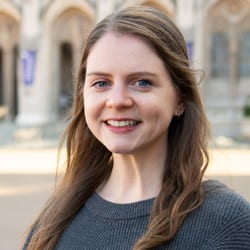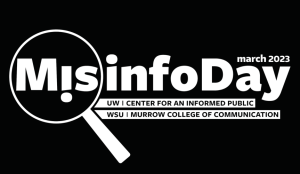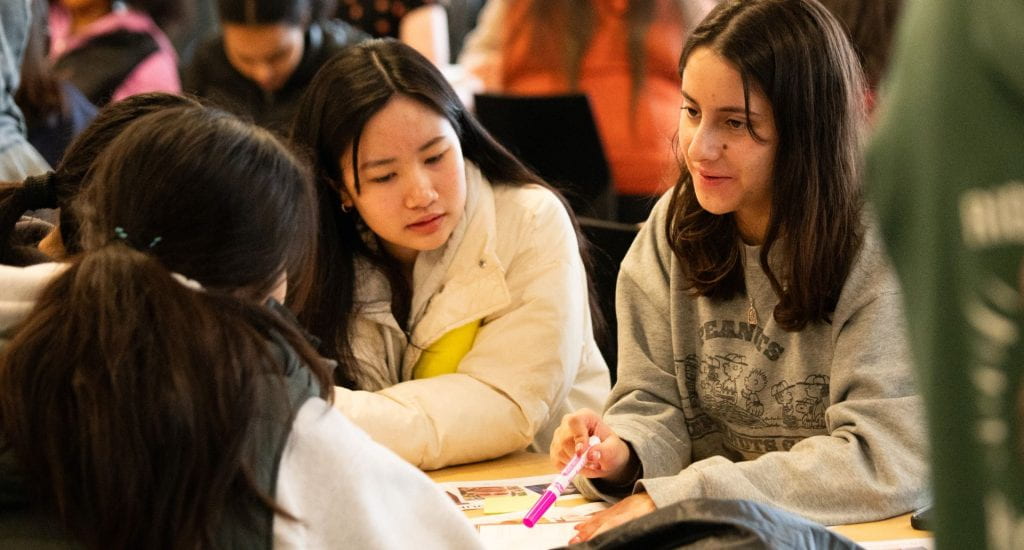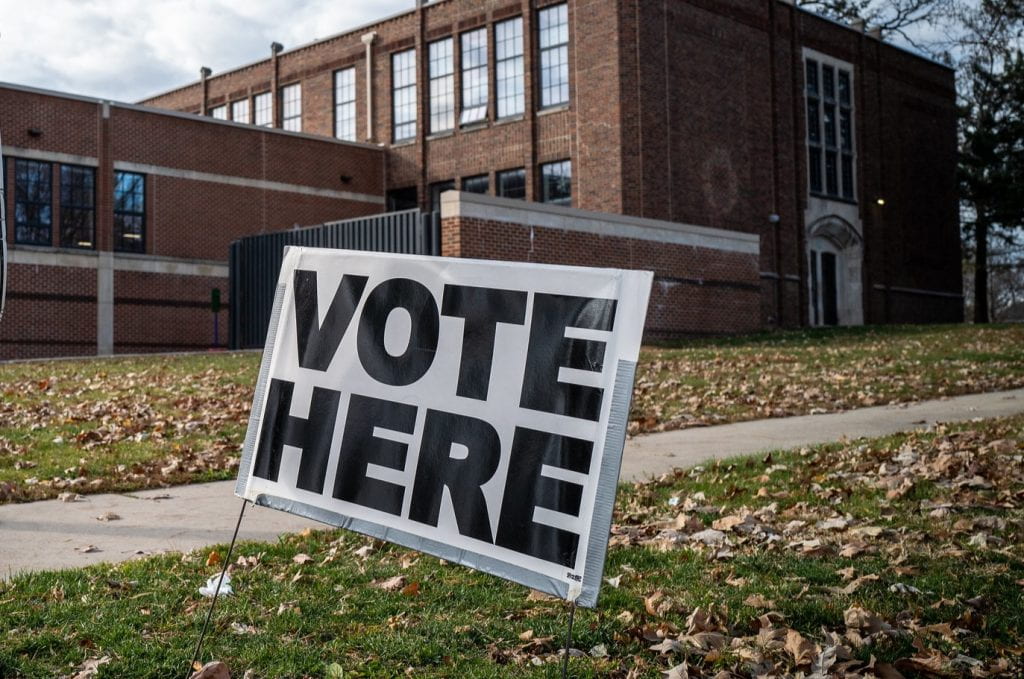This is the web version of the January 2023 edition of the Center for an Informed Public‘s News & Insights newsletter that was originally sent out on January 25, 2023.
CIP’s rapid-response research team analyzes rumors, conspiracy theories, mis- and disinformation from the 2022 U.S. midterm elections
In recent months, approximately 40 University of Washington faculty, research scientists, postdoctoral and legal fellows, graduate and undergraduate students, working as part of the non-partisan Election Integrity Partnership (EIP) research consortium co-led by the UW Center for an Informed Public and the Stanford Internet Observatory, have been engaged in work to identify and analyze emerging rumors, conspiracy theories and mis- and disinformation from the 2022 U.S. midterm elections.
The CIP’s team is currently working on the EIP’s final report on their 2022 work, planned to be released in the coming months. The EIP’s March 2021 report, “The Long Fuse: Misinformation and the 2020 Election,” was recently cited in the first chapter of the final report recently released by the U.S. House Select Committee Investigating the January 6 Attack on the U.S. Capitol.
- READ MORE | CIP researchers monitoring voting rumors, conspiracy theories and mis- and disinformation on and after Election Day
- WATCH | CIP director Kate Starbird participates in a Nov. 17 CNN post-election panel discussion, “The Myth of Widespread Voter Fraud”
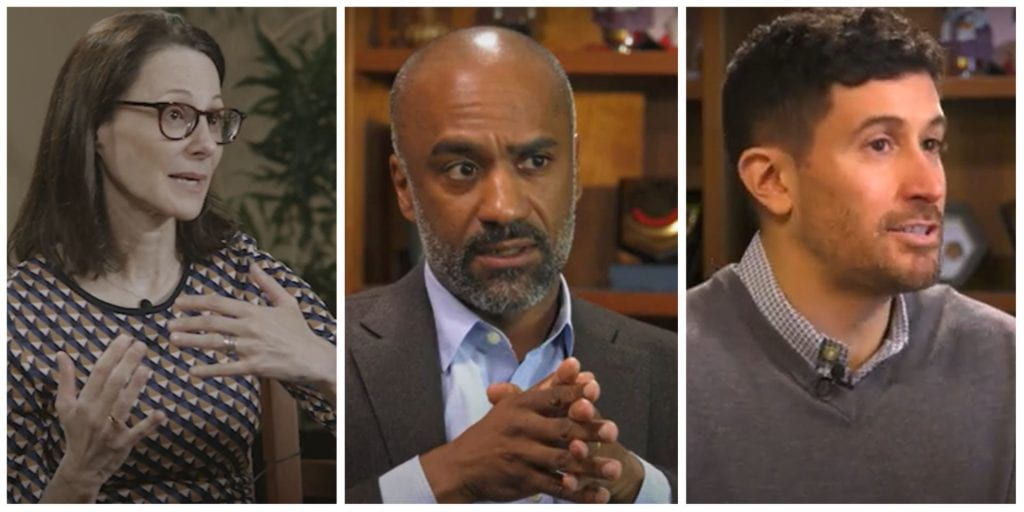
SPOTLIGHT
CIP’s visiting legal fellows explore intersection of misinformation and the law in Q&A interview series
In a Q&A series with CIP visiting legal fellows, CIP co-founder Ryan Calo, a professor at the UW School of Law and the Information School, interviews Danielle Citron, a University of Virginia Law professor, 2019 MacArthur Fellow and author of The Fight for Privacy Protecting Dignity, Identity, and Love in the Digital Age (Norton, 2022); Olivier Sylvain, a Fordham University Law professor, Federal Trade Commission advisor and noted information and communication law and policy scholar; and Ari E. Waldman, a professor of law and computer science at Northeastern University and author of Industry Unbound: The Inside Story of Privacy, Data, and Corporate Power (Cambridge University Press, 2021).
PEOPLE
Anna Lee Swan, who studies wellness influencers online, joins CIP as a postdoctoral fellow.
Swan studies the interstitial spaces of identity, content creation, and influencer media and has taught a variety of courses including intercultural communication and public speaking.
RESEARCH
With new grant funding, Co-Designing for Trust team starts NSF Convergence Accelerator Phase 2 work.
INSIGHTS
Twitter’s double-edged impacts on science and research communications
A Dec. 20 article in Nature about Twitter’s double-edged impacts on science and research communications, especially during the COVID-19 pandemic, featured comments from CIP faculty member Carl T. Bergstrom. “Twitter was a really powerful way to do rapid science in some of the areas that we were working,” said Bergstrom, a UW Department of Biology professor, who is one of many researchers who has migrated over to Mastodon.
In a Nov. 19 guest essay in The New York Times, “Twitter was influential in the pandemic. Are we better for it?,” Bergstrom observed: “As we consider how social media can serve science and society going forward, we should notice how the profit models that underpin the whole endeavor stand in the way of the honest discussion of science. Most of the time that’s just annoying. In a pandemic, inhibiting the flow of accurate scientific information can be deadly.”
EDUCATION
Attention educators: MisinfoDay 2023 is coming in March!
For the first time since the start of the pandemic, MisinfoDay is returning in person on three WA campuses in 2023: UW Seattle, WSU Pullman and WSU Vancouver
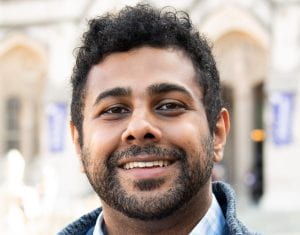 PEOPLE
PEOPLE
Sukrit Venkatagiri brings expertise in designing, evaluating sociotechnical systems to CIP’s work.
Venkatagiri has built multiple crowdsourcing systems to scale up and speed up experts’ work practices in domains such as journalism and human rights activism.
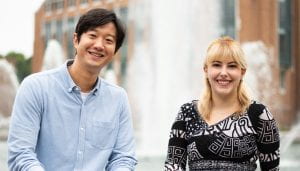 STUDENTS
STUDENTS
iSchool Ph.D. students work on the misinformation puzzle.
The escape rooms are a project from the Center for an Informed Public, in partnership with the Technology & Social Change Group, GAMER Research Group and Puzzle Break.
RESEARCH
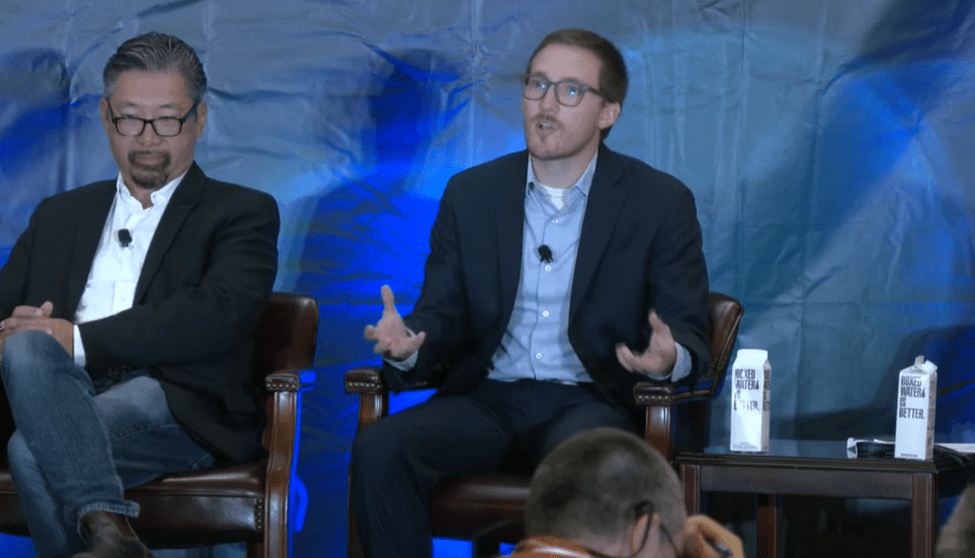
CIP researchers find that video headlines served by Google are ‘a notable pathway’ to content that may undermine trust in elections
During the Trust and Safety Research Conference hosted by the Stanford Internet Observatory in September, Center for an Informed Public graduate analyst Morgan Wack, a UW Political Science doctoral candidate (pictured above), presented findings from “Auditing Google’s Search Headlines as a Potential Gateway to Misleading Content: Evidence from the 2020 U.S. Election,” a peer-reviewed paper Wack co-led with UW Human Centered Design & Engineering doctoral candidate Himanshu Zade, with CIP co-authors Yuanrui Zhang, Kate Starbird, Ryan Calo, Jason Young, and Jevin D. West. One of the potentially more actionable findings is that “the headlines of the video content reported in our Google Search results pages contained a disproportionate amount of undermining-trust content when compared to alternative SERP verticals (search results, stories, and advertisements).” Indeed, the researchers say, “Video headlines served to be a notable pathway to content with the potential to undermine trust.”
- Read the paper in the Journal of Online Trust and Safety
- Read more about this paper in Tech Policy Press
- Himanshu Zade’s explainer tweet thread
***
MORE CIP RESEARCH HIGHLIGHTS | Recent peer-reviewed research and other work published in Information, Communication & Society, Scientific American, the Journal of Online Trust & Safety and Harvard Kennedy School Misinformation Review, among other publications.
EDUCATION

CIP’s Jevin West works to build research and education ties between WA state and Finland around media literacy, mis- and disinformation
During a September visit to Finland, where he joined Washington Gov. Jay Inslee and State Sen. Marko Liias at the U.S. Embassy in Helsinki to discuss topics including media literacy, CIP co-founder Jevin West also met with researchers and educators at the University of Helsinki and within the Finnish government. The goal of the work in Finland, which supports the fifth area of the 2021 Memorandum of Understanding Washington state leaders signed with the Finnish government — new technologies changing ways how societies interact — is to share research methods, teaching programs and ideas for addressing these challenges that are far from unique in the United States.
CIP IN THE NEWS
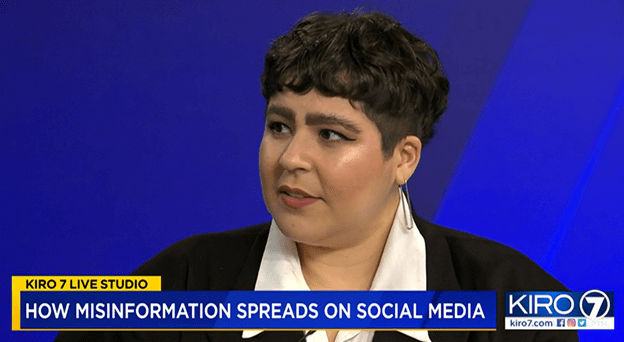
CIP’s Taylor Agajanian shares tips for debunking a dubious Seattle-area serial killer rumor
- Read the article, “A misinformation researcher debunks a serial killer rumor,” in Seattle Met.
- Agajanian was also interviewed live in-studio by KIRO7-TV’s Monique Ming Laven and Gary Horcher, and by GeekWire and KING5-TV.
***
For additional recent interviews and news coverage featuring CIP research and researchers — including news stories from The Associated Press, National Public Radio, The New York Times, PolitiFact, CyberScoop, The Seattle Times, and KING5-TV — explore media mentions for August, September, October, November and December — or our full news archive.


